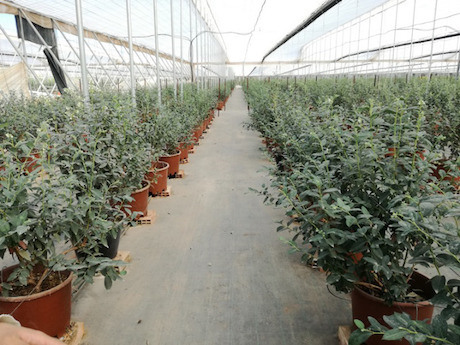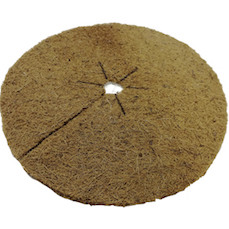Performing weed control, even with systems that don't include herbicides (such as rice straw, sawdust, or anti-weed meshes) can increase fruit yields in blueberry plants by up to 56.6%.
Tests carried out over several years in Chilean blueberry producing areas show significant increases in fruit yield in high-density blueberry fields by comparing manual weeding, every 3 weeks, with the uncontrolled control group, stated Engineer Alvaro Villalba, the Director of Horticulture at Projar.

While the use of rice straw and manual control helped to obtain good yields, the increase in yields in the tests was lower than that produced by some herbicides and systems based on anti-weed meshes, which are a clear alternative to the use of chemical products as they were very effective, even though - in some cases- producers need to complement them with manual weeding around the plants' base, Villalba said.
He also said that, in addition to the yield losses during the harvest season, there was a loss in the following season, even if the manual control of weeds was very efficient, because the yield depends not only on the production season but also on how the control was performed before the plants entered their winter recess.
In addition to the loss of yields, the fruit's size is smaller and, in some cases, there is competition for pollinating agents because weed flowers may be more attractive than blueberry flowers.
The most important thing is prevention, that is, preventing weeds from appearing, preventing them from reproducing and spreading. Not controlling weeds during the crop and also at the end of the harvest affects yield performance in the following season, he warned.
To avoid these losses, he said, Projar has developed a series of products, such as the Horsol Berryline anti-weed mesh that protects the soil in the farm, to prevent the proliferation of weeds that can complicate maintenance and harvesting tasks.
"This product reduces the labor involved, keeping the crops free of weeds both in indoor and outdoor cultivation," he added.

They have also developed the Discprotect weed control, a 100% natural coconut fiber disc specially designed for pot planting, which prevents the growth of weeds at the base of the substrate. The disc is made of coconut fiber treated with natural rubber spray, which makes the fibers retain their disc shape. This element protects the substrate base from weeds because it completely covers that area. It also provides other benefits: avoids evapotranspiration but its interlaced fibers allow aeration.
More information:
Engineer Alvaro Villalba
Cell phone: +34661940779
E-mail: [email protected]
www.projar.es
